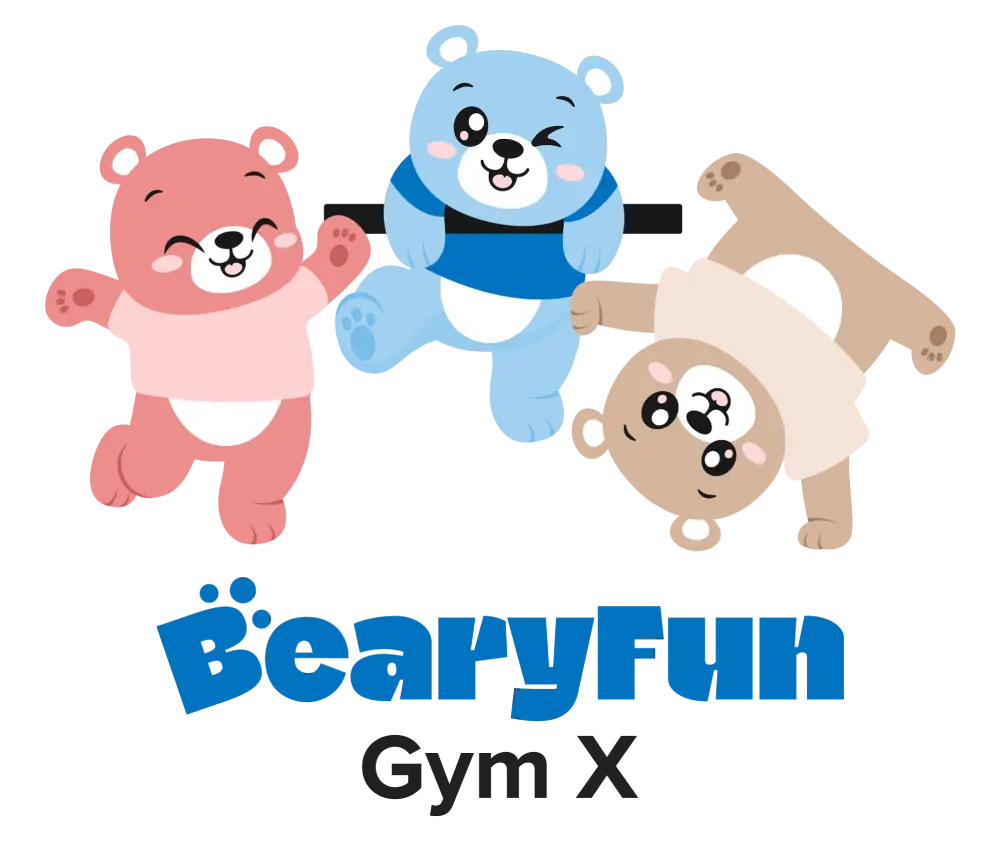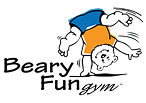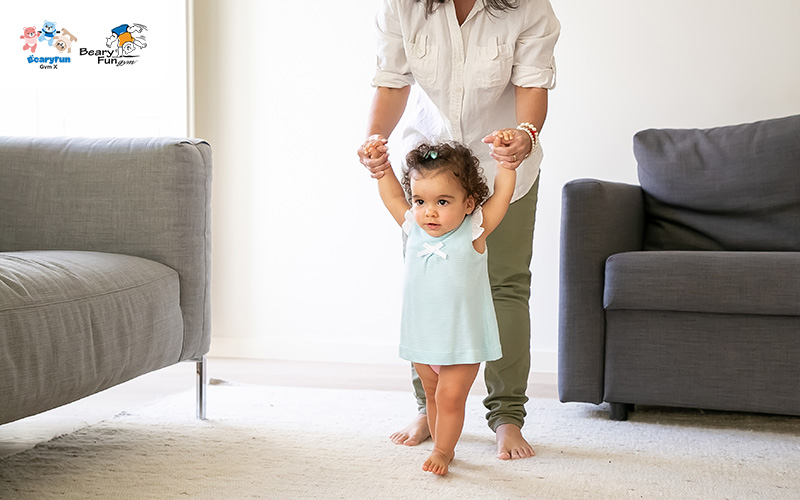Key Takeaways
- Physical development is often defined by predictable stages, from head control to advanced coordination.
- Milestones vary by age group, but all children develop at their own pace.
- Movement-rich environments and guided play are great ways to support motor development.
Physical development in children refers to how a child’s body grows and gains control over movement. This includes both large movements, such as walking and jumping, and smaller ones, like gripping a pencil or using a pair of scissors. As children develop, their body growth and coordination improve in tandem, allowing them to do more complex tasks with confidence.
While parents and educators in Singapore often focus on academic progress, physical milestones are just as important. These developments affect not only fitness and health but also emotional confidence and social independence. By learning what to expect, you can create better support systems at home, in schools, and through enrichment activities like gymnasium classes.
Development Happens in Stages
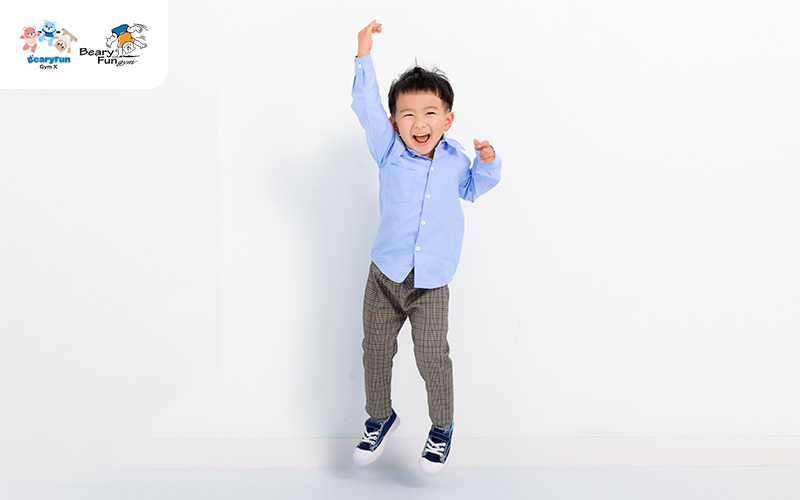
Physical development in children occurs in a predictable order, with most children achieving certain abilities within a typical time frame. It usually starts with gross motor skills, such as head control, sitting up, crawling, and walking. These large movements form the foundation for more refined actions later.
Once a child has mastered the basics, they begin working on fine motor skills, like picking up a crayon or fastening buttons. This sequence is natural and important. Skipping steps or rushing development can affect coordination and confidence.
For example, a toddler who is not yet confident in walking might struggle with jumping later on. On the other hand, a child exposed early to environments where they can explore movement, like crawling on soft mats or climbing on safe structures, builds the muscle control needed for the subsequent milestone.
Key Milestones by Age Group
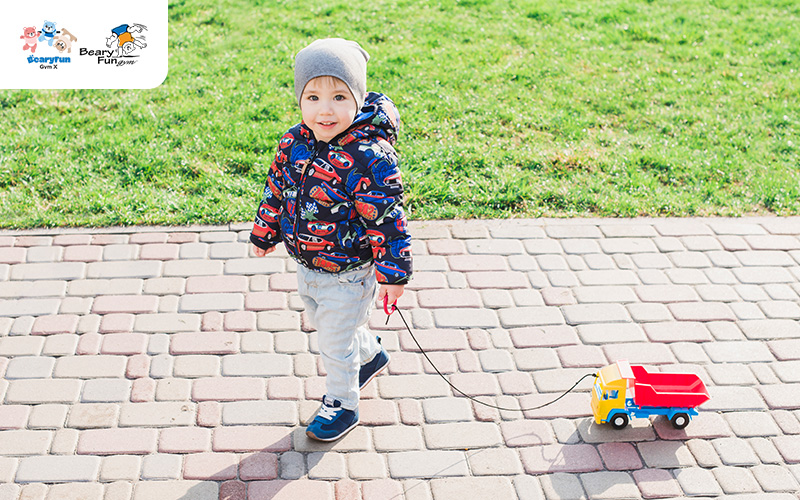
Here is a general guide to some typical physical milestones, giving you a rough gauge of what to expect once your child reaches a certain age:
12–18 months
- Begins to walk independently
- Squats and stands back up without help
- Pulls toys while walking
2–3 years
- Runs steadily
- Kicks a stationary ball
- Jumps forward with both feet
4–5 years
- Balances on one foot for a few seconds
- Uses scissors with some control
- Hops forward confidently
5–6 years
- Skips using alternating feet
- Catches a bounced ball with hands
- Gains better control over handwriting and small tools
That being said, it is important to note that these milestones are just averages, and that every child’s timeline is unique. A delay in one area does not necessarily signify a long-term issue.
Every Child Develops at Their Own Pace
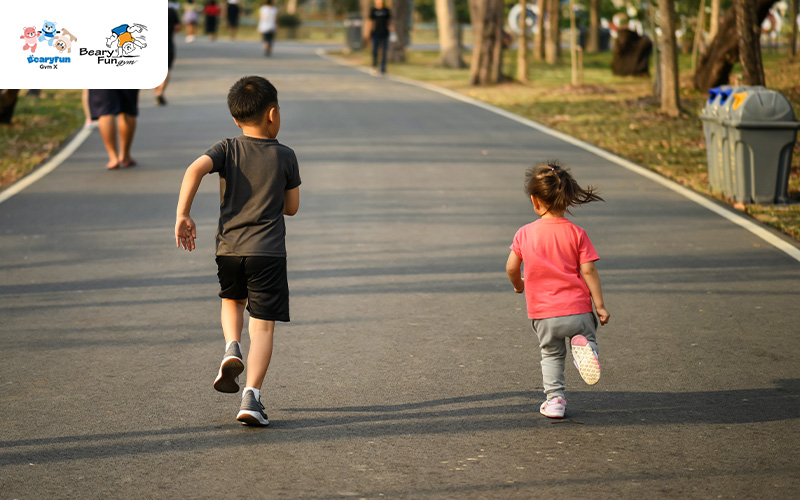
While milestone charts are helpful, they are not strict checklists. Physical development in children can be vastly different depending on their home and school environments, as well as their exposure to movement activities.
One child may be an early runner but take longer to master using the scissors. Another may find balancing tricky but excel at ball games. It is important not to compare children directly, but instead observe their progress over time. Consistency is more important than speed.
Parents can support this natural pace by offering open-ended movement play and activities that challenge balance, strength, and coordination. Additionally, enrolling in programmes like fitness classes for 12-year-olds or joining a gym trial can help older children continue developing essential skills.
Environmental Impact Matters
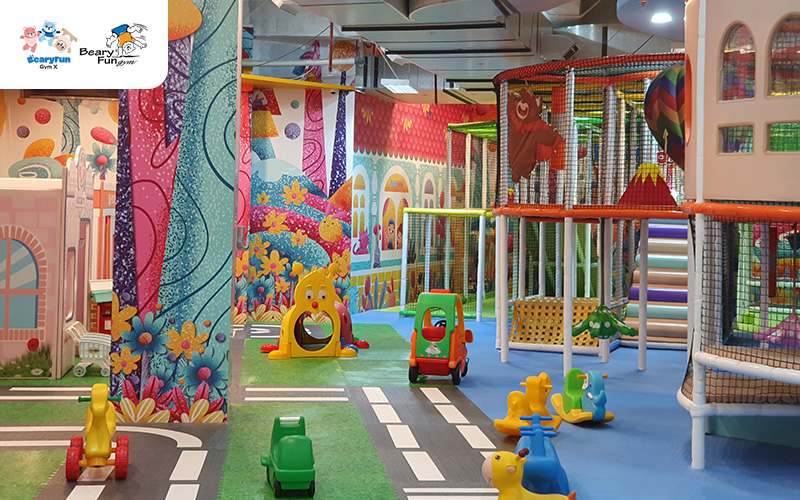
Children need room to move. The more they are allowed to explore movement safely, the better they develop both physically and mentally. In Singapore’s urban landscape, access to outdoor play spaces can be limited, but there are plenty of alternatives that are just as beneficial to physical development in children.
For instance, indoor activity spaces, structured physical programmes, and enrichment gyms are just a few examples of the high-quality activities and facilities that can be found all around Singapore. Gymnasium classes in particular offer more than just fun; they are designed to strengthen coordination, balance, and spatial awareness.
Here at BearyFun Gym, children get to run, jump, climb, roll, and hang in a safe, nurturing setting. This variety of activities strengthens core muscles and improves control, which in turn supports everyday movements like writing, tying shoelaces, and sitting with proper posture.
Watch for Patterns, Not Perfection
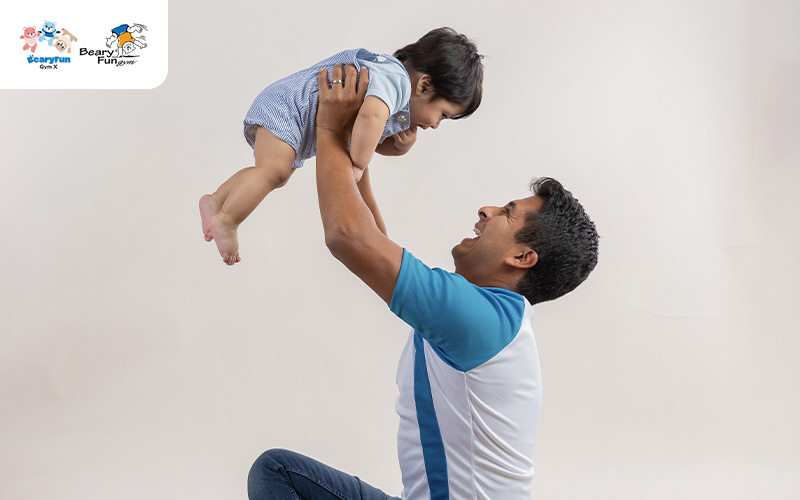
It is normal for children to be stronger in some areas than others. However, consistent difficulties, such as frequent falls, stiff movements, or resistance to physical play, may all be signs that extra support is needed.
Rather than focusing on perfection, look for patterns. Is your child avoiding tasks that require balance or coordination? Do they tire quickly or become frustrated with physical games? If so, early intervention or a structured movement programme can help.
Understanding physical development in children helps caregivers recognise milestones, support healthy body growth, and build confidence in every stage. While milestones serve as helpful guides, remember that children thrive best when given time, support, and freedom to move at their own pace.
Here at BearyFun Gym, we offer specially designed gymnasium classes that promote gross motor skills and overall physical development. From toddlers learning to walk to older kids building agility, our programmes provide the environment children need to grow strong and confident. We also offer free gym trials if you and your child wish to have a first-hand experience of how our classes are conducted.
To learn more about our programmes and facilities or to book a gym trial, please contact us today.
